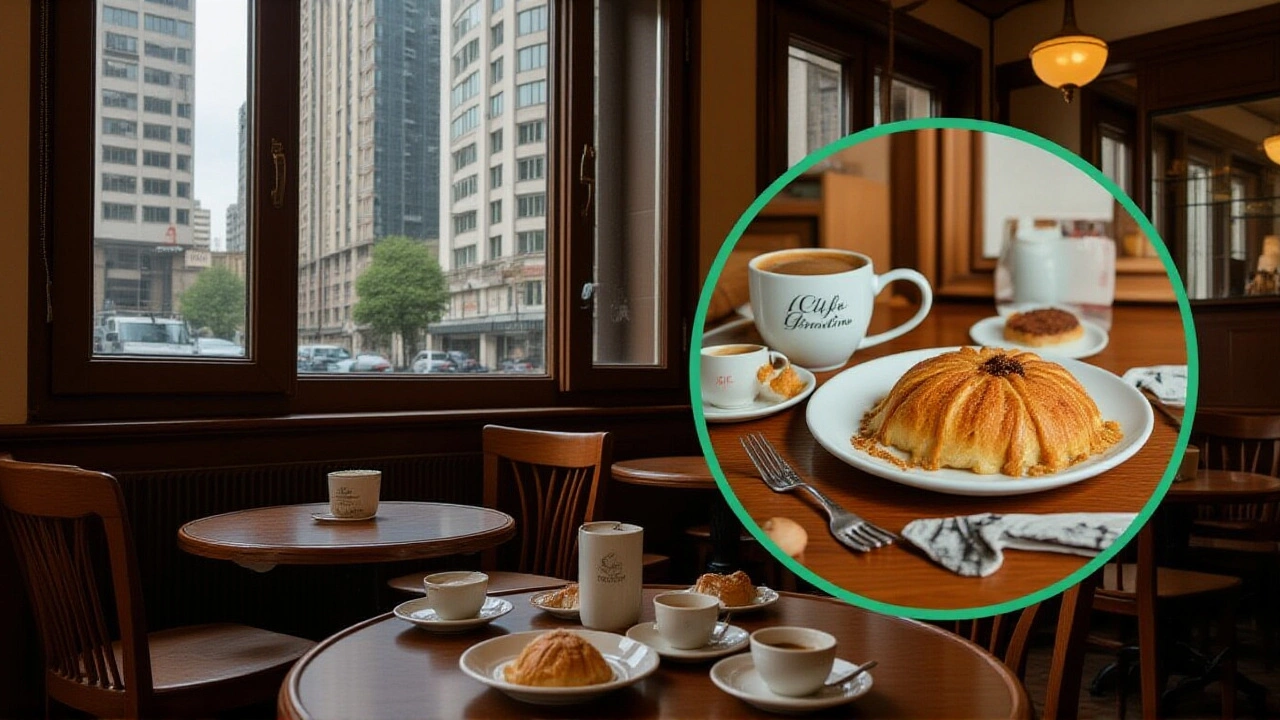São Paulo FC – Inclusive Sports Highlights
When talking about São Paulo FC, a professional football club from São Paulo, Brazil, famous for multiple national and international titles. Also known as Tricolor, it stands as a cultural icon in South America. The club’s history shows how a sports organization can shape city pride, inspire youth, and drive social change. São Paulo FC has become more than a team; it’s a platform for community projects and inclusive outreach.
One of the biggest stages for the club is Campeonato Brasileiro, the top‑tier football league in Brazil where São Paulo FC competes each season. Playing in this league forces the club to keep high performance standards while also embracing broader responsibilities. The competition pushes the squad to innovate on the field, and that drive often spills over into inclusive programs off the field. Fans notice that when the team battles for a title, it also champions accessibility in its stadium and community events.
Accessibility is a concrete goal at Morumbi Stadium, the home ground of São Paulo FC with a capacity of over 67,000 spectators. Recent upgrades include tactile paving for visually impaired fans, wheelchair‑friendly sections, and captioned video boards. These changes show that a big‑size venue can adapt to diverse needs without sacrificing atmosphere. The stadium’s staff receive regular inclusivity training, turning a match day into a welcoming experience for families of all abilities.
The club’s adaptive football program, initiatives that allow players with disabilities to train and compete alongside able‑bodied athletes is a core part of its community outreach. By partnering with local disability groups, the program offers weekly training sessions, mentorship from senior players, and pathways to competitive play. Participants often cite the program as a confidence booster, and the club uses these stories in its social campaigns. The adaptive program influences the broader fan community, encouraging more inclusive attitudes at home games and grassroots clubs.
Beyond the senior squad, the youth academy integrates inclusive values from the start. Young talents entering the academy receive equal access to facilities, coaching, and educational resources. The academy’s curriculum now includes sessions on diversity, mental health, and respect for all opponents. This early exposure creates a generation of players who view inclusivity as a normal part of sport, rather than a special project.
The women’s team adds another layer to the club’s inclusive narrative. Competing in Brazil’s top women’s league, the side benefits from shared training grounds, medical staff, and marketing resources. By promoting both men’s and women’s games equally, São Paulo FC challenges gender bias and opens doors for female athletes seeking professional careers. The club’s social media highlights these achievements, showing fans a holistic picture of football’s reach.
Fans themselves play a vital role. Supporter groups organize transport for disabled supporters, run sign‑language interpretation booths at major matches, and fundraise for adaptive equipment. Online forums hosted by the club encourage discussions about how to improve accessibility further. This two‑way dialogue ensures that the club’s policies stay relevant and that supporters feel heard.
All these elements—league participation, stadium upgrades, adaptive programs, youth development, women’s football, and fan activism—create a rich ecosystem around São Paulo FC. Below, you’ll find a curated list of recent stories that dive deeper into each of these topics, offering practical insights, interview highlights, and up‑to‑date coverage of the club’s inclusive journey.

São Paulo FC vs Flamengo to clash at Fort Lauderdale’s Chase Stadium
Sep 30, 2025 / 0 Comments
São Paulo FC and CR Flamengo play a 0‑0 friendly at Fort Lauderdale’s Chase Stadium on Jan 19, 2025, marking a historic first for both clubs and boosting the Brazilian community’s ties to South Florida.
READ MORERECENT POSTS
- Black Friday 2025: Ninja air fryers, M&S coats and Currys' lowest-ever prices flood UK stores
- James Carragher swaps shirt with Lewandowski after Malta debut
- Blue Jays Stun Mariners 4-3 in ALCS Game 7 to Reach World Series
- Steve Martin's Film Legacy Ranked: 'The Jerk' Tops Lists as Career Spanning 40+ Years Celebrated
- O.J. Simpson Estate Agrees to Pay Goldman Family $57.9M in 2025